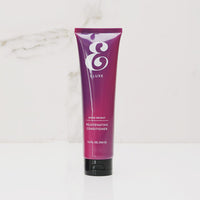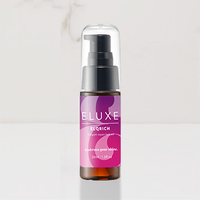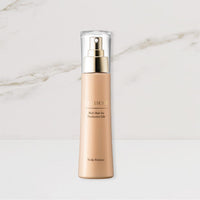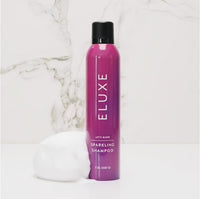What Are the Best Vitamins & Supplements for Women’s Hair Growth?
Does your hair feel brittle, and is it prone to breakage? Hair loss, breakage, and slow growth have many causes, but a big factor is your vitamin intake.
There are plenty of women’s hair vitamins and supplements on the market, but which of them actually work? Some vitamins are better for your body than others when it comes to promoting hair growth.
Best Vitamins and Nutrients for Nourishing Your Hair
Different vitamins and supplements offer varying benefits to your hair’s health. What are the best vitamins for women’s hair growth? These are the nutrients you should look for in any supplement you buy.
Vitamin A
Vitamin A has a significant impact on tissue development, which includes your hair. It also produces sebum, an oily substance that keeps your skin and hair lubricated and resistant to breakage.
A deficiency in this vitamin can lead to more damaged hair and prevent hair growth. However, if you’re taking vitamin A and your hair starts falling out, that may be a sign you’re taking too much vitamin A. Just make sure you’re eating a balanced diet to avoid this problem.
Biotin (Vitamin B7)
Biotin is a vitamin many researchers believe improves the health of your hair, nails, and skin. One study gathered a group of women experiencing hair loss and gave them either a placebo or biotin supplement and observed their growth progress over three months. By the end, they found the women who took the biotin supplement had noticeable hair regrowth.
Despite this study and others that replicated similar results, researchers have not found concrete evidence that biotin improves hair health. However, a biotin deficiency can result in thinning hair. Although this vitamin deficiency is rare, it does suggest biotin plays a vital role in your hair growth.
Vitamin E
Hair follicles need a consistent blood supply to stay active. Vitamin E helps your body maintain consistent blood pressure, which helps your scalp receive optimal circulation. Additionally, vitamin E plays a role in your body’s oil production to help your skin and hair stay moisturized and protected from heat and arid conditions.
Protein
Your hair is made of protein, so you need plenty of it to promote hair growth. Protein deficiency is usually uncommon with today’s typical diet, but you should be sure to eat plenty of lean proteins, like fish, chicken, and cottage cheese, to keep your protein levels high.
Secondary Vitamins
Other vitamins are helpful—but not essential—to your hair’s health.
Vitamin B12
A deficiency in vitamin B12 can lead to hair loss, anemia, and fatigue. However, this does not prove that taking supplemental vitamin B12 will improve or thicken your hair; it may just regulate normal hair growth. Still, there is no harm in using hair supplements that include this vitamin.
Vitamin C
Vitamin C helps your body produce collagen, which is a protein used to develop your hair follicles. Taking supplemental vitamin C can accelerate your body’s collagen production, which in turn can lead to healthier hair.
Vitamin D
Vitamin D is an essential nutrient for every person’s health, as it promotes healthy bones, boosts your immune system, and may even contribute to healthy hair. One study found that vitamin D can stimulate new and old hair follicles. And when there isn’t enough vitamin D in your system, it can lead to hair loss.
What Are the Best Hair Growth Supplements for Women?
Now that we’re past all of the science behind your hair, which supplements use the right nutrients? Here are our favorite hair growth supplements for women:
- Hair La Vie Clinical Formula Hair Vitamins (vitamin E, vitamin C, vitaminD)
- Love Beauty and Planet Multi-Benefit Vitamins (biotin, vitamin A, vitamin D, vitamin B12,vitamin C)
- Nutrafol Hair Growth Supplement (vitamin A, vitamin C, vitamin D, biotin)
- Moon Juice SuperHair (vitamin A, vitamin C, vitamin D, vitamin E)
- Ritual Essential for Women 18+ (vitamin B12, vitamin D, vitamin E, iron)
Do Hair Growth Vitamins Work?
Most of the nutrients mentioned above discuss issues from vitamin deficiencies. Keep in mind, faster hair growth vitamins for women only work for those who already have a vitamin deficiency.
Your body doesn’t use up extra vitamins, it just gets rid of them. You can overdose on certain vitamins, which leads to side effects like diarrhea, nausea, and even hair loss (in vitamin A’s case).
If you’re worried about why your hair isn’t full or isn’t growing as fast as it used to, talk to your doctor. They can help you sort out whether or not you have a vitamin deficiency that might be causing this problem.
Meanwhile, if you think you might have a vitamin deficiency, there’s no problem with taking supplements—your body will absorb what it needs and get rid of what it doesn’t. And as long as you take the amount recommended on the bottle, you won’t risk taking too much.










